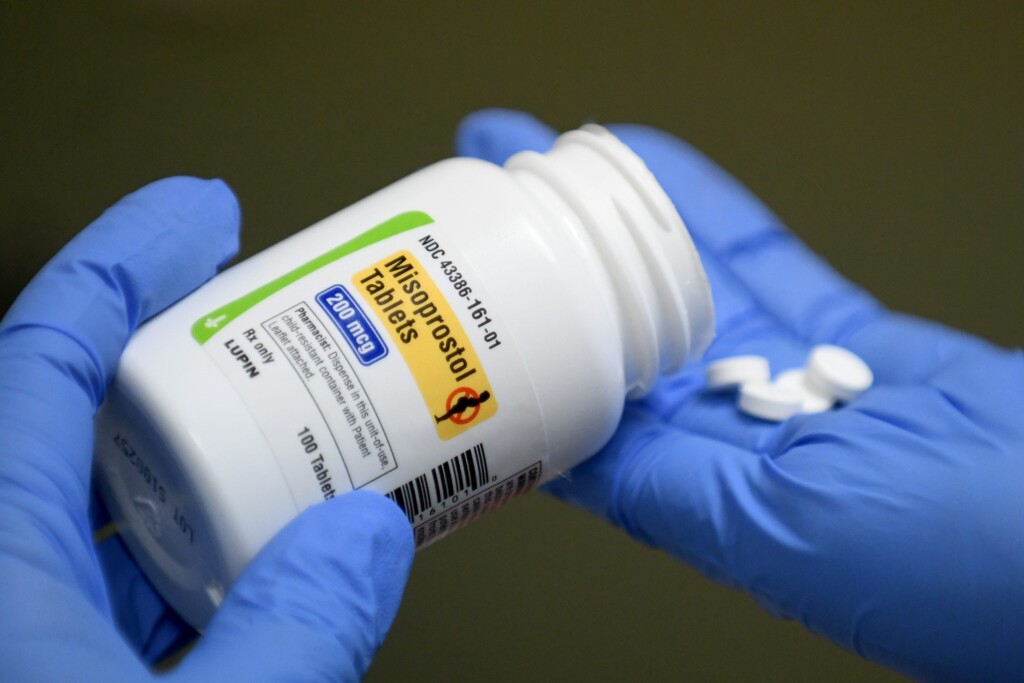This week, a federal judge in Texas will begin hearing a case that seeks to overturn the Food and Drug Administration’s approval of the drug mifepristone, which is often used in abortions. Last week, state Rep. Julie Johnson (D-Dallas) filed legislation that would protect pharmacists filling prescriptions for a drug often used in tandem with mifepristone in medication abortions: misoprostol.
Judge Matthew Kacsmaryk is set to begin hearing arguments Wednesday in Amarillo on mifepristone. The progesterone blocker mifepristone has more than one use. While it is primarily used to end pregnancies that are less than 10 weeks along, it can also be used by some patients with Cushing syndrome, where it helps to control high blood sugar.
If mifepristone is banned, as some doctors and advocates fear it will be, misoprostol can be used alone to induce abortion. While it’s more commonly used alone in other countries, the misoprostol-only regimen has a success rate of 80 to 100 percent. However, in 2021 (and just weeks after a near-total ban on abortion in the state became law), Gov. Greg Abbott signed into law a bill that shortened the length of time doctors could prescribe both drugs from 10 weeks of pregnancy to 7. Violators can face a state jail felony, up to two years in jail, and a fine of $10,000.
“I filed this bill just to remove any pharmacist liability under the abortion bills because the liability still rests with the physician —if they write this prescription for use of an abortion, it’s still the physician’s responsibility under the statute,” Johnson says.
There are several reasons why a doctor might prescribe misoprostol. Its original use was to prevent stomach ulcers in patients taking anti-inflammatory drugs, for instance. It’s frequently used off-label by gynecologists and obstetricians for a variety of things— so much so that it is on the World Health Organization Model List of Essential Medicines. It makes some gynecological procedures less painful, is used to treat postpartum bleeding, can induce labor, and helps complete a miscarriage.
And it can be used in abortions, a fact that has caused increased scrutiny and often refusals by some pharmacies to fill prescriptions.
After Texas’ abortion bills became law, women almost immediately began reporting difficulties getting prescriptions of misoprostol filled, even when those prescriptions were used for procedures not related to abortion. Johnson says those refusals by pharmacists spurred her to draft House Bill 3774, which would prevent pharmacists from facing civil or criminal liabilities for dispensing misoprostol when it is prescribed by a doctor, regardless of the reason.
She also hopes it cuts down on what she calls “second-guessing” by pharmacists. “They are requesting all this documentation and are practicing medicine without a license, in my opinion, when they refuse to fill these prescriptions,” she says. “This bill was really brought to me by gynecologists who are just having fits in terms of treating women with all kinds of issues and complications that have nothing to do with seeking an abortion.”
Johnson—and many doctors and women’s health advocates—feel that the state went too far when it sought to limit access to misoprostol in particular.
“This is an attempt to help at least rein it in so that doctors who are trained in obstetrics and women’s gynecological health have access to a key medicine and aren’t being second-guessed by pharmacists because they’re afraid,” she said.
There was no companion bill filed in the Senate for HB3774, and without a Democratic majority in either house, advancing the bill will likely be difficult. Johnson remains optimistic, saying that the Texas Medical Association, as well as gynecologists and even pharmacists, are supportive of the measure.
“They would like to see this bill pass,” she says. “It would certainly help alleviate confusion and misunderstanding around the prescribing and acquisition of this medicine.”
Author






